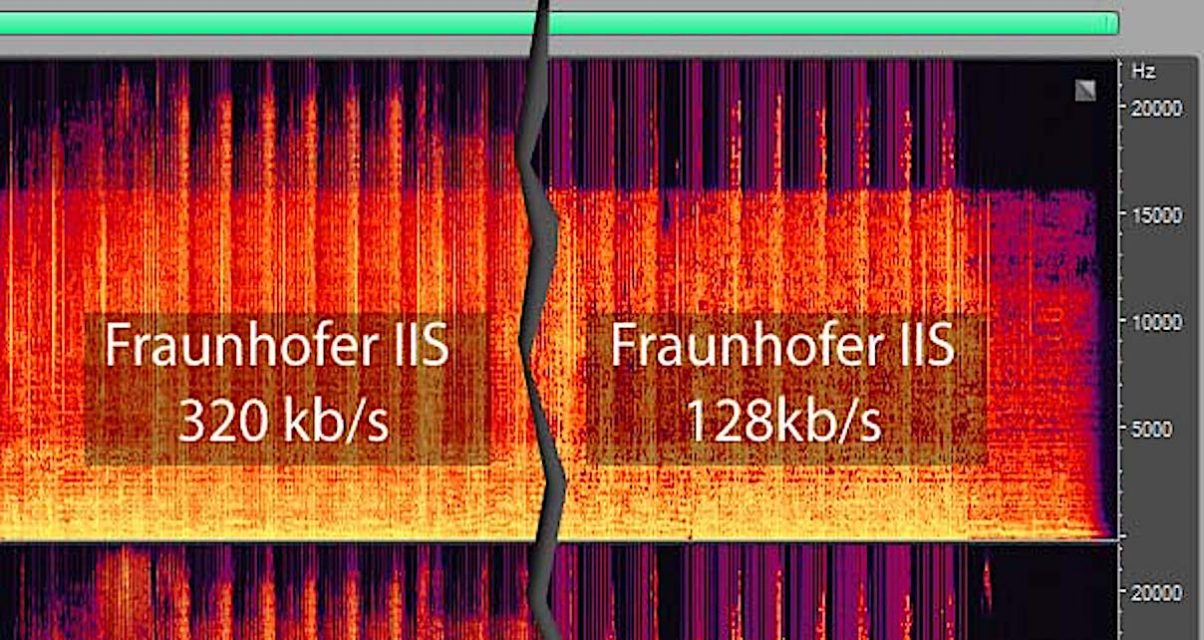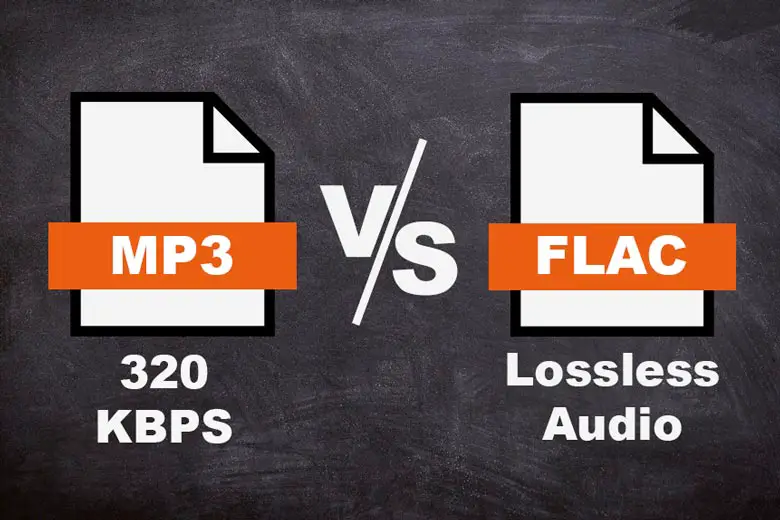Cool Info About Is 320kbps 24-bit

128 Kbps Vs 320 Cfqlero
Decoding Audio Quality
1. Understanding the Basics
So, you're diving into the world of audio quality, huh? Excellent choice! It's a rabbit hole, I tell ya, but a rewarding one. You've probably stumbled upon the phrase "320kbps 24-bit" and are wondering if it's the audio equivalent of finding the Ark of the Covenant. Let's break it down. Kbps stands for kilobits per second, which essentially measures the data rate of an audio file. Think of it as the width of the pipe the audio is flowing through. The higher the number, the wider the pipe, and theoretically, the more audio information can pass through, leading to better quality. But there's more to the story.
Now, let's talk about "24-bit." This refers to the bit depth, which is like the resolution of your audio. It determines the dynamic range or the difference between the quietest and loudest sounds the audio can represent. A higher bit depth, like 24-bit, means a wider dynamic range and more subtle nuances captured. Think of it as the difference between a blurry photo and a high-definition one. You get more detail with the higher bit depth. Combine these two, and you might think you've got audio nirvana.
However, here's a little secret: just because an audio file is labeled "320kbps 24-bit" doesn't automatically make it sound amazing. The original source material is crucial. If the recording itself was subpar, no amount of high bit rate or bit depth will magically transform it into a sonic masterpiece. Garbage in, garbage out, as they say. It's like trying to bake a gourmet cake with expired ingredients. The final product won't be impressive, no matter how skilled the baker.
Furthermore, your listening equipment also plays a significant role. Are you listening through cheap earbuds or high-end headphones connected to a decent DAC (Digital-to-Analog Converter)? The weakest link in the chain will always bottleneck the overall experience. So, while 320kbps 24-bit is a good start, it's just one piece of the puzzle. Now, let's delve a little deeper into why it might not always be the best option and when it might be overkill.

Your Questions Converting MP3s From 128kbps To 320kbps...
Delving Deeper
2. The Perceived Audio Quality
Okay, so we've established what 320kbps 24-bit means, but let's get real about how much of a difference it actually makes. For many people, the difference between a 320kbps MP3 and a 24-bit FLAC file is minimal. Especially in noisy environments or with less-than-stellar headphones. Our ears are surprisingly good at filling in the gaps, and our brains can be easily tricked. The placebo effect is strong in the audio world, I'm telling you!
However, if you're an audiophile with a trained ear, listening in a quiet environment with high-quality equipment, you might notice a difference. You might hear more subtle details, a wider soundstage, and a more natural, "analog" feel. But even then, it's not a night-and-day difference for every track. Some recordings simply don't benefit as much from the higher resolution. It's kind of like having a super-sharp knife for spreading butter. Sure, it works, but is it really necessary?
Consider the source material again. If you're listening to heavily compressed pop music mastered for radio, a 320kbps 24-bit version isn't going to magically reveal hidden depths. The mastering process itself may have already squeezed the life out of the dynamics. You're better off focusing on the quality of the recording and mastering rather than just chasing the highest numbers. Think of it like this: a perfectly cooked fast-food burger is still just a fast-food burger.
Finally, consider the file size. 320kbps 24-bit files are significantly larger than lower-quality formats. If you're streaming music on your phone with limited data, or if you're trying to conserve storage space, it might not be the most practical choice. There's a point of diminishing returns, where the perceived improvement in audio quality isn't worth the added file size and bandwidth consumption. It's a balancing act, just like most things in life.

The Difference Between A Highres Flac 24/96 And Normal
The Alternatives
3. Finding the Right Balance
So, if 320kbps 24-bit isn't always the answer, what is? Well, it depends. For streaming, many services offer high-quality options like 256kbps AAC or 320kbps Ogg Vorbis, which are often very transparent and difficult to distinguish from lossless formats in blind tests. These codecs are more efficient than MP3 and can deliver excellent sound quality at smaller file sizes. They are generally more than enough for most listeners and situations.
If you're archiving your music collection, or if you're a serious audiophile, lossless formats like FLAC or ALAC are the way to go. These formats preserve all the original audio data and allow you to convert to other formats without losing quality. You can rip your CDs to FLAC or purchase lossless downloads from various online stores. Just be prepared for the larger file sizes. Think of it like having a meticulously preserved historical document, ready to be studied and appreciated for generations to come.
Experimentation is key. Try listening to the same song in different formats and bitrates and see if you can actually hear a difference. Use a blind test if possible, to eliminate any biases. You might be surprised at how difficult it is to tell the difference between a high-quality MP3 and a lossless file. And remember, your ears are unique. What sounds good to one person might not sound good to another. It's a subjective experience, after all.
Ultimately, the "sweet spot" depends on your individual needs and preferences. Consider your listening habits, your equipment, your storage space, and your budget. Don't get caught up in the hype of chasing the highest numbers. Focus on enjoying the music. That's what it's all about, isn't it? The best audio quality is the one that makes you happy.

Practical Considerations
4. Optimizing Your Listening Experience
Now that we've covered the theory, let's get practical. How do you actually achieve the best possible sound quality? First, invest in decent headphones or speakers. You don't need to spend a fortune, but a good pair of headphones or speakers will make a noticeable difference, regardless of the audio format. Read reviews, try out different models, and find something that suits your listening style. It's like finding the perfect pair of shoes comfort and performance are key.
Second, consider using a dedicated DAC (Digital-to-Analog Converter). Your computer or phone has a built-in DAC, but it's often not the highest quality. An external DAC can improve the sound quality by converting the digital audio signal into an analog signal with greater accuracy and detail. This is especially important if you're using high-end headphones or speakers. Think of it like upgrading the engine in your car it can unlock the full potential of your vehicle.
Third, pay attention to your listening environment. A noisy room can mask subtle details in the music, making it harder to appreciate the nuances of high-quality audio. Try to listen in a quiet environment, or use noise-canceling headphones to block out distractions. It's like trying to enjoy a fine wine in a crowded bar the ambiance matters.
Finally, experiment with different EQ settings. Many music players and streaming services offer EQ settings that allow you to adjust the frequency response of the audio. You can use these settings to fine-tune the sound to your liking and compensate for any deficiencies in your headphones or speakers. Just be careful not to overdo it, as excessive EQ can distort the sound. It's like adding spices to a dish a little can enhance the flavor, but too much can ruin it.

Julio Iglesias HeyLyrics FLAC HD HQ QUALITY 24 Bit 320KBPS YouTube
Frequently Asked Questions (FAQs)
5. Your Burning Audio Questions Answered!
Let's tackle some common questions about audio quality and 320kbps 24-bit.
Q: Will I really hear a difference between 320kbps and lossless?A: It depends! Factors include your equipment, listening environment, and most importantly, your ears. Try some blind tests to find out for yourself. Don't let anyone else tell you what you can or can't hear!
Q: Is 320kbps good enough for Spotify?A: Absolutely! Spotify's highest quality setting is 320kbps Ogg Vorbis, which is considered very transparent. For most people, it's more than sufficient for a great listening experience on the go.
Q: What about Bluetooth? Does that affect audio quality?A: Yes, Bluetooth can introduce some compression, depending on the codec used. AptX and LDAC are generally considered to be higher-quality Bluetooth codecs than SBC. If you're serious about audio quality, consider using wired headphones instead.
Q: Should I convert all my music to 320kbps 24-bit?A: No! Converting lower-quality audio to a higher bitrate won't magically improve the sound. You're just adding unnecessary file size. Focus on getting the highest quality source material you can find. It's like trying to polish a turd you're still left with a turd.
